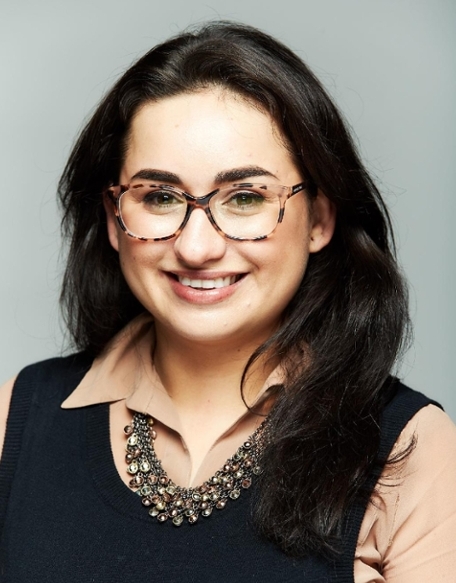At Brandeis, Ana Sarmiento Found Her Footing in Genetic Counseling
 February 11, 2020
February 11, 2020
Cynthia Kipkorir | Graduate School of Arts and Sciences
Ana Sarmiento MS’19 became interested in genetic counseling when she was twenty-three. As the daughter of a Guatemalan immigrant, she was particularly attracted to the educational aspect of the discipline. She recalls that during her childhood, “I had to interpret many difficult documents for my Spanish-speaking mother and phrase it in a way that she would understand.” This experience made her realize that she had a talent for “taking complex topics and boiling them down for others,” an important skill for a genetic counselor.
Sarmiento was attracted to the Brandeis program because of its emphasis on the psychosocial aspects of the discipline. “It is my belief that with enough gumption and determination, anyone can master genetics knowledge,” she says. “However, themes of empathy, compassion, and support cannot be taught through textbooks and are instead enforced by a community that lives and breathes them.”
The program was rigorous and challenging, as Sarmiento expected, but she felt “incredibly supported” by the faculty and her classmates. “The faculty were dedicated to our success,” she says. “They checked in on us academically, but also personally. This was especially important to me because I believe that someone’s professional success is rooted in their personal development. To nurture one is to nurture the other, and the Brandeis faculty really shone in this respect.”
Her favorite part about the program was the opportunity for students to engage with the local community. For instance, she was able to participate in educational outreach and career days at local high schools where students had the chance to “showcase the genetic counseling profession to individuals that otherwise may never have heard of it.” Additionally, Brandeis’s partnership with institutions like the Perkins School for the Blind and the Cotting School for children with special needs helped students meet individuals they would encounter in a real work environment.
For her thesis, Sarmiento studied the “attitudes of training program leadership and the current state of diversity within the genetic counseling workforce.” This topic was important to her as she wanted to “capture the stance of genetic counseling training programs admissions teams to identify areas where we can improve.” Through the thesis, Sarmiento learned that for the past thirty years, the workforce in genetic counseling has been more than ninety percent white. This is also reflected in her career as she adds that “as an ethnic minority within genetic counseling, I sometimes struggle with ‘fitting in.’” Sarmiento adds that things are changing, though slowly.
Currently, Sarmiento is currently working as a Cancer Genetic Counselor at Rocky Mountain Cancer Centers in Aurora, Colorado, where she sees patients and engages with tumor boards for the breast and gastrointestinal clinics. She knew going into the program that she wanted to work in the cancer field, and says the program was “very good at shaping their students’ clinical experience based on their interests.” Utilizing the “flex internship,” an internship program that allows students to pursue an internship tailored to their specific interests, Sarmiento was able to participate in two cancer rotations, including one in Santiago, Chile. Completing an internship in Chile was particularly important to Sarmiento because she was able to pursue her career goal of providing genetic counseling services entirely in Spanish.
For students considering a graduate degree in Genetic Counseling, Sarmiento’s advice is to “not be afraid to ask for help.” She goes on to add that “counseling people during hardship isn’t easy. We cannot expect to have the right answers and we cannot do this alone. Reach out to your classmates, teachers, and mentors.”






